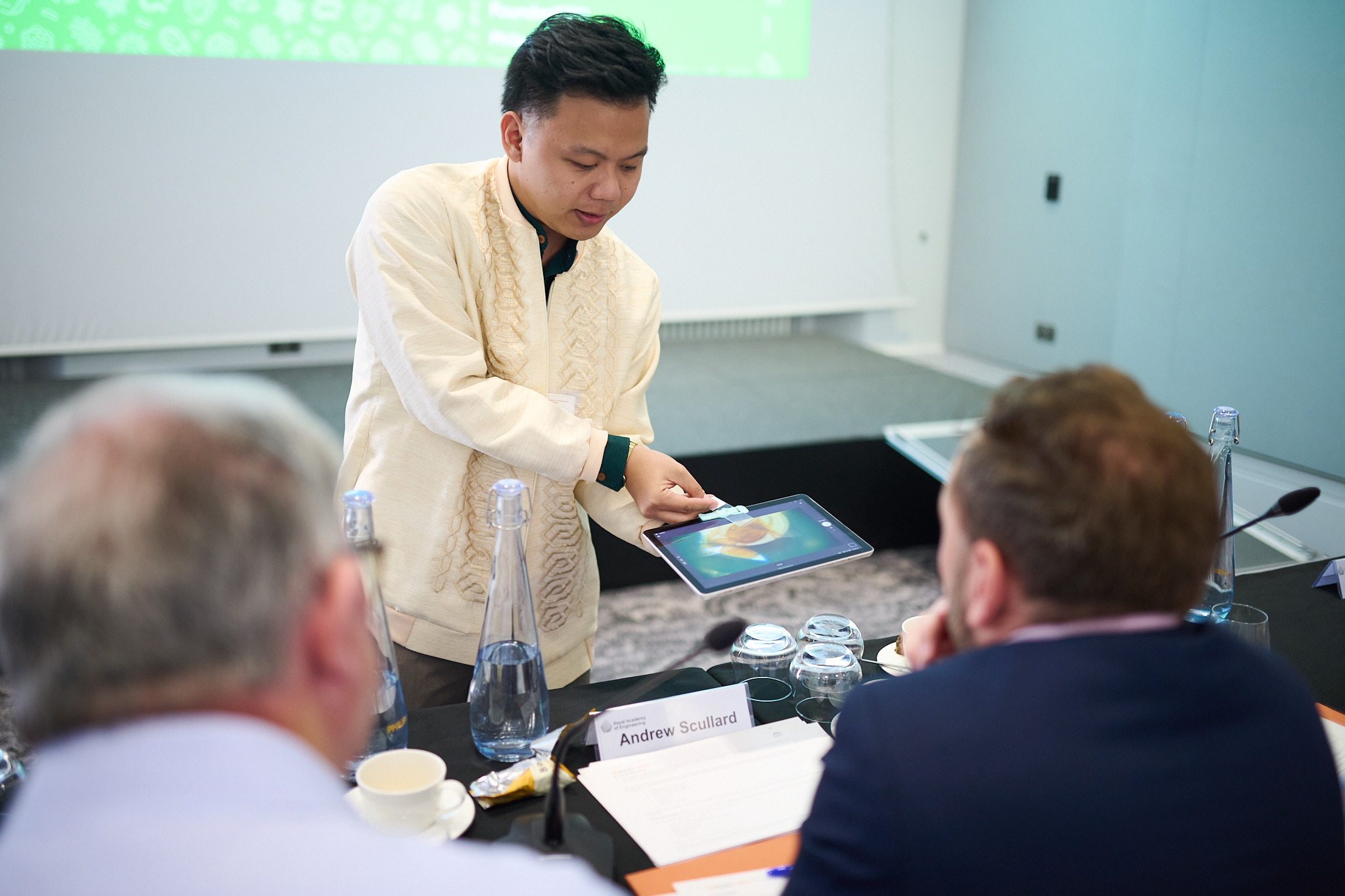Engineering innovation has the power to transform lives. Across all areas of the globe, entrepreneurs continue to deliver novel solutions to some of society’s most pressing challenges. Nonetheless, these solutions are not guaranteed, with the entrepreneurial journey often fraught with uncertainty, isolation, and a lack of early support: the last of the three commonly acting as a powerful barrier to entry.
The world’s biggest problems aren’t waiting, however, and neither are we. Supporting changemakers in bringing their purpose-driven ideas from early-concept to launched solutions, Leaders in Innovation Fellowships (LIF) Launchpad is the Academy’s newest initiative to support social entrepreneurship globally. Drawing on the Royal Academy of Engineering Enterprise Hub’s experiences of delivering pre-seed support in the UK, namely through Regional Talent Engines, this pilot programme will bring together 150 early-stage innovators for a three-month programme to refine and test their impact focused ideas. This is designed to provide crucial hands-on training and experience, as well as to foster the entrepreneurial mindset and network needed to develop an effective, cutting-edge solution. Our goal is to nurture emerging ideas, and to grow the pool of prospective entrepreneurs and their solutions, feeding our structured funnel of international startup support through the LIF programme.

Filipino innovator Jeremy De Leon showcases his 'Makeroscope' innovation to our panel at the LIF Global 2024 Pitch Day.
Nurturing innovation in the Philippines
The Philippines is rapidly emerging as a vibrant hub for technological innovation. Working with pioneering Filipino innovators, the pilot programme will be launched in Manila in September 2025 to support impactful ideas with the power to drive meaningful change in local communities and beyond. Those who graduate from LIF Launchpad will be encouraged to apply for the LIF Global 2027 programme to receive support in commercialising their innovation.
By working with early-stage entrepreneurs to understand and explore the feasibility of their ideas, we hope to also improve the diversity of groups who deliver these world-changing solutions. The latest ‘Entrepreneurship Realty Check’ report from the Global Entrepreneurship Monitor suggests that certain demographics, such as graduates, younger generations (defined as those aged between 18 to 34), and those who identify as male, are more likely to become entrepreneurs than other demographic groups. The same report also highlights that one of the core reasons behind this weak representation is a lack of training and mentoring opportunities.
By providing an accessible opportunity for early-stage innovators, irrespective of education, age, or otherwise, we hope to work with underrepresented changemakers in exploring the feasibility and validity of their ideas, as well as their interest in the field of entrepreneurship.
A pathway to innovation
The Royal Academy of Engineering is a global leader in driving entrepreneurship. Through our Regional Talent Engines, we have delivered pre-accelerator support to over 110 early-stage entrepreneurs across the UK, demonstrating the value that this targeted, early-stage support can provide. Drawing on our experience, we have partnered with UNLEASH to extend this support to entrepreneurs globally, enhancing best practices for supporting social entrepreneurship in Lower and Middle-Income countries (LMICs).
LIF Launchpad Philippines will consist of two stages:
• Stage one, UNLEASH Innovation Lab: 150 innovators will spend one week conceptualising their solution to a complex social challenge, and building a rapid prototype framed by design-thinking principles. This allows innovators to test the feasibility of their ideas, share best practice, and connect with like-minded changemakers in-country.
• Stage two, Prototyping Fellowship: Selected teams will be invited to progress to the second stage. Successful candidates will join a three-month programme to refine their prototypes and test them in different operational environments. Innovators will receive dedicated support, including 1:1 training and mentorship, access to online learning materials, and local support within makerspaces across the Philippines.
Following graduation, innovators interested in commercialising their prototype can receive continued support through applying to the LIF Global 2027 programme.
Chair of the LIF Steering Group Ian Ritchie CBE FREng FRSE says: “Innovation fuels progress—but too often, early-stage entrepreneurs are held back by uncertainty, isolation, or lack of early support. Around the world, promising ideas risk fading before they can truly take shape. By fostering entrepreneurial talent in its earliest stages, we hope to empower Filipino innovators to refine and test their ideas, enhance their understanding of entrepreneurship, and connect themselves to a global ecosystem of changemakers."
